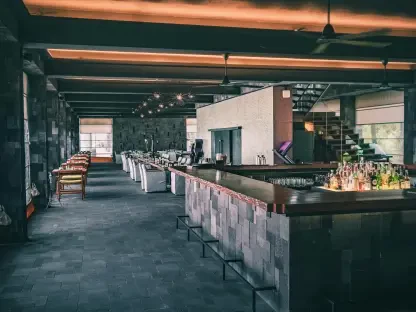The hospitality industry, known for its vibrant and dynamic atmosphere, hides a grim reality within its walls: the pervasive issue of sexual harassment and assault. This problem is not limited to Australian metropolises but extends to smaller cities like Canberra. By delving into the personal experiences of hospitality workers and examining industry-wide trends, we uncover the scope of this issue and explore potential ways to foster a safer and more inclusive environment.
The Sydney Morning Herald Exposé and Its Ripple Effect
Industry-Wide Reaction to the Swillhouse Revelations
The Sydney Morning Herald’s exposé on Swillhouse hospitality group in Sydney was a pivotal moment, unveiling severe cases of sexual misconduct faced by female staff. This revelation ignited broader conversations about gender-based violence and harassment, piercing through the veneer of the industry’s public image. Industry insiders reacted with a mix of shock and acknowledgment, recognizing the need for urgent change. Women in hospitality shared their stories more openly, highlighting that these issues are sadly common across various cities, big and small.
The exposé forced the hospitality sector to confront the systemic problems that have long plagued it. Female employees who had previously remained silent due to fear of retaliation or job loss began to speak out, emboldened by the increased visibility and support from advocacy groups. This collective outpouring of experiences served as a sobering reminder that sexual harassment in hospitality is a pervasive issue that requires immediate and sustained attention from all industry stakeholders.
Cultural Similarities in Smaller Cities Like Canberra
Contrary to the assumption that such problems are confined to larger metropolises, smaller cities like Canberra also grapple with persistent issues of misogyny and harassment. Lucy Ridge’s decade-long career as a chef in Canberra underscores that toxic workplace dynamics are equally problematic in these environments. Ridge’s insights reveal that the hierarchical and male-dominated nature of the industry reinforces a “boys club” mentality, perpetuating harassment and creating unsafe workplaces. This toxic culture extends beyond the kitchen to front-of-house roles, where staff face direct threats from intoxicated patrons.
The smaller scale of cities like Canberra does not provide immunity from these issues; rather, the close-knit nature of the community can often exacerbate them. Workers may find it even more difficult to voice grievances or seek support because reputation and connections hold significant sway. The familiarity and interconnectedness of these smaller settings can sometimes cloak inappropriate behavior in a shroud of normalcy, reinforcing the need for robust policy changes and cultural shifts that are enforced consistently across all cities, regardless of size.
Experiences of Harassment Across Different Roles
Challenges Faced by Kitchen and Front-of-House Staff
Hospitality workers encounter harassment in various forms depending on their roles. In the kitchen, the environment is often characterized by a hyper-masculine culture, where demeaning comments and aggressive behavior are prevalent. Female workers find themselves navigating a landscape where their professional skills are overshadowed by a toxic attitude towards their gender. The “boys club” mentality is particularly pronounced, with male chefs and kitchen staff dominating the scene, often leading to exclusionary practices and blatant sexism. This culture not only stifles the professional growth of women but also perpetuates an environment where disrespect and harassment are normalized.
Front-of-house staff confront different but equally daunting challenges. Bartenders and servers, especially women, are frequently subjected to inappropriate behavior from customers emboldened by alcohol. This creates a constant state of vigilance, making it difficult for them to perform their duties without fearing for their safety. The interaction with customers introduces another layer of complexity; while tips and customer satisfaction are crucial for business, they often come at the cost of enduring lewd comments and unwanted advances. The dichotomy of maintaining professionalism while managing harassment underscores the urgent need for comprehensive reforms within the industry.
Coping Mechanisms and Professional Sacrifices
Female hospitality workers have developed various coping mechanisms to manage the toxic culture. Some shift to relatively safer roles within the industry, though this often comes at the expense of career advancement. These decisions are rarely made lightly; the trade-offs include not only professional limitations but also personal stress and emotional toll. The constant need to weigh safety against career progression is a testament to the systemic failures that allow such toxic environments to persist. The resilience shown by these women is commendable, but it is also a glaring indicator of the industry’s dire need for transformation.
Others rely on forming informal support networks, sharing information about unsafe workplaces to protect their peers. While these networks provide a crucial lifeline, they also highlight the industry’s failure to offer institutional support and protection. The presence of these networks indicates a glaring gap in formal mechanisms for addressing harassment, pushing employees to create their own systems of safety and support. As these networks grow, they play a dual role—empowering women to navigate their careers more safely while simultaneously underscoring the need for formal, enforceable policies that prioritize worker safety and well-being.
Grassroots Initiatives and Institutional Efforts
Formation of Informal Support Networks
One of the most notable responses to the pervasive problem of harassment is the formation of informal support networks among female hospitality workers. These networks serve as vital resources for sharing experiences and warnings about unsafe environments, creating a semblance of protection in an otherwise hostile industry. The solidarity offered by these networks can be a powerful deterrent against harassment, as perpetrators may fear exposure and backlash. However, the reliance on these informal structures also points to a significant lapse in institutional accountability and support mechanisms, leaving women to fend for themselves in an industry fraught with risks.
Despite their importance, these networks are a double-edged sword. While they provide much-needed support, they also reinforce the notion that women must fend for themselves, highlighting the failure of institutional measures to adequately protect them. This self-reliance underscores a broader systemic issue where companies and management often fall short in implementing and enforcing comprehensive anti-harassment policies. The existence of these networks reflects both the resilience of women in hospitality and the urgent need for formalized, industry-wide solutions that ensure a safe working environment for all employees.
Advocacy and Research for Cultural Change
Grassroots initiatives are complemented by institutional efforts aimed at addressing harassment in hospitality. Events like the Venus Vinifera’s Subject Matters Symposium and research collaborations with the Australian Human Rights Commission spotlight the need for cultural shifts, promoting dialogue around inclusivity and safety. These platforms provide valuable opportunities for sharing knowledge, experiences, and best practices, fostering a collective understanding of the issues at hand and how best to address them. They also serve to elevate the voices of those who have been marginalized, ensuring that their experiences inform policy changes and industry standards.
Such advocacy efforts are critical in challenging entrenched norms and fostering a more inclusive industry. By raising awareness and advocating for policy changes, these initiatives pave the way for meaningful improvements in workplace culture. However, the success of these efforts hinges on their ability to catalyze concrete actions and reforms within the industry. The transition from dialogue to implementation is crucial, as is the commitment from all stakeholders—from management to employees—to uphold these new standards. The combination of grassroots advocacy and institutional support offers a pathway to a hospitality industry where safety, respect, and inclusivity are paramount.
Power Dynamics and Hierarchical Obstacles
The Impact of Hierarchical Structures
The steep hierarchical structures in hospitality play a significant role in perpetuating harassment and abuse. With male dominance often seated at the top, the power dynamics create an environment where misconduct can thrive unchecked. This imbalance of power makes it particularly challenging for victims to speak out or seek justice. The hierarchical nature means that those at the lower rungs, often women and vulnerable populations, have limited avenues for redress. The fear of retaliation, job loss, or further victimization keeps many silent, allowing the cycle of harassment to continue unabated.
The transient nature of the labor force, including vulnerable groups such as apprentices and working visa holders, exacerbates the issue. These groups often lack the security to report harassment, fearing repercussions that could jeopardize their employment or future opportunities. This vulnerability is further compounded by the fact that many of these workers are reliant on temporary or seasonal employment, making them less likely to challenge the status quo or report issues. The precariousness of their employment status places them at a significant disadvantage, underscoring the urgent need for systemic reforms that prioritize the protection of all workers, regardless of their position within the hierarchy.
Management’s Role in Addressing Complaints
A significant barrier to addressing harassment in hospitality is the deficient response from management when complaints are raised. In many cases, women who voice their concerns are dismissed or labeled as troublemakers, perpetuating a culture of silence. This inadequate response is often rooted in a lack of comprehensive training and awareness among management, as well as a tendency to prioritize business interests over employee welfare. The failure to take complaints seriously not only undermines the credibility of the victim but also sends a dangerous message that harassment is tolerated or, at best, not a priority.
For meaningful change to occur, management must prioritize creating safe and supportive environments. This involves not only addressing complaints with the seriousness they deserve but also implementing preventive measures, such as comprehensive training and clear policies against harassment. Management should be trained to recognize signs of harassment and respond effectively, ensuring that victims feel supported and validated. Additionally, creating anonymous reporting mechanisms can help mitigate fears of retaliation, encouraging more victims to come forward. A proactive approach from management is essential in fostering a culture of accountability and safety within the hospitality industry.
Towards a Safer and More Inclusive Hospitality Industry
Steps Forward: Visibility and Accountability
The hospitality industry, often celebrated for its lively and bustling environments, conceals a troubling reality: the widespread issue of sexual harassment and assault. This significant problem isn’t just confined to major Australian cities like Sydney and Melbourne; it also affects smaller urban areas, such as Canberra. By investigating the personal stories of hospitality workers and analyzing broader industry patterns, we can gain a deeper understanding of the extent of this issue.
Workers in the hospitality sector frequently find themselves in vulnerable situations, dealing not only with the pressures of their jobs but also facing the threat of unwanted advances or outright assault from customers and colleagues alike. The power dynamics in many establishments, where employees rely heavily on tips and customer satisfaction for their livelihood, can make it difficult for victims to come forward.
To create a safer, more inclusive workplace, it’s crucial to implement systemic changes. This could include comprehensive training programs on recognizing and preventing harassment, better support systems for victims, and stricter enforcement of zero-tolerance policies. Only by addressing these underlying issues head-on can we hope to foster a work environment in the hospitality industry where everyone feels safe and respected.









